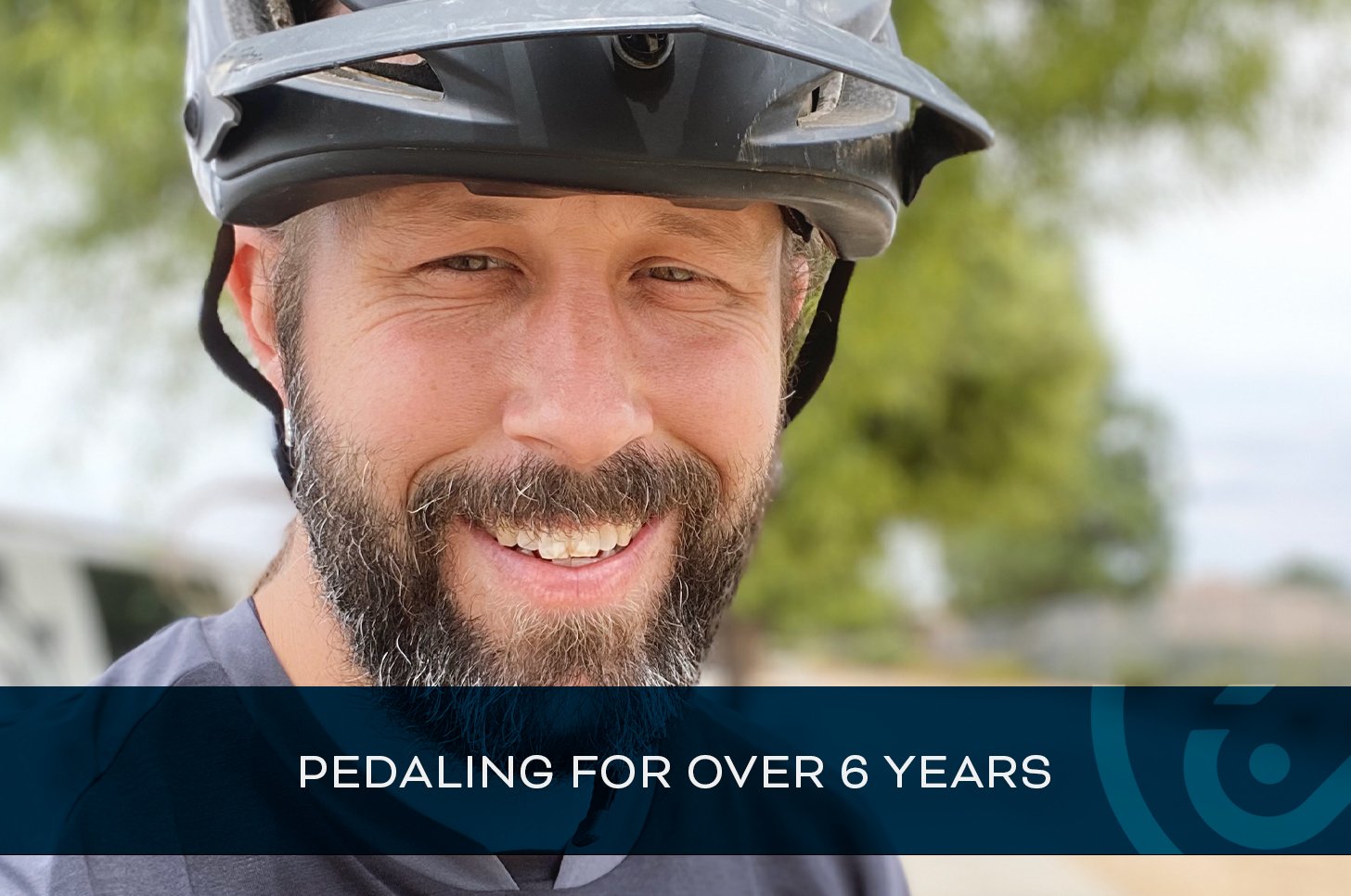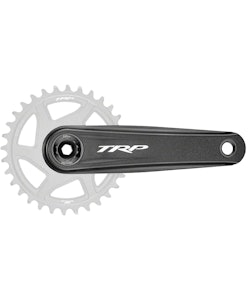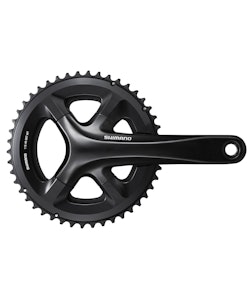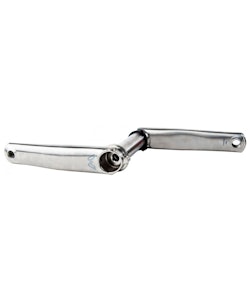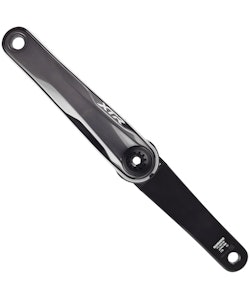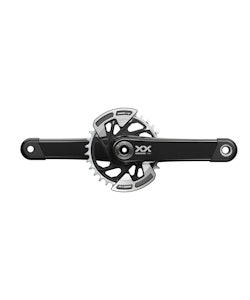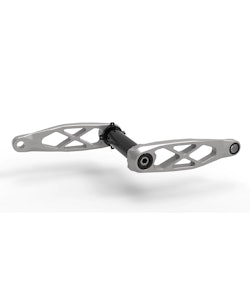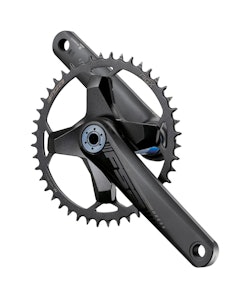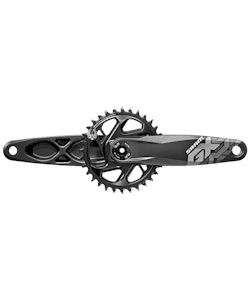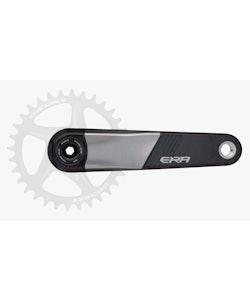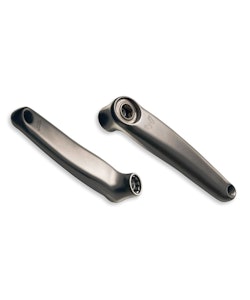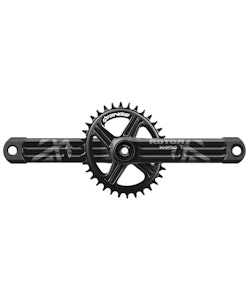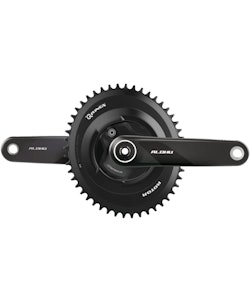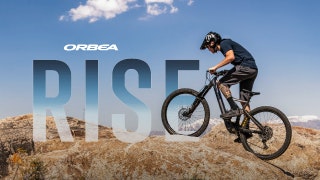Cranksets
Cranksets reside at the core of your drivetrain, converting your pedaling power into forward motion down the road or trail. Typically the phrase crankset refers to cranks, chainrings, and bottom bracket. But because these critical components are not universal across all bikes, and not always sold together, it is very important to understand what your bike needs before making a final buying decision.
Among the choices you will need to make are crank length, which generally range from 165mm to 180mm in 2.5mm increments to accommodate different sized riders. Crank material is also a consideration, with carbon fiber and aluminum the two most common choices. Some cranks also serve the dual purpose of being a power meter, which measures your actual output in watts, helping you gauge your efforts during training and/or racing.
Chainrings, which are machined wheels of metal with evenly-spaced teeth around the outer edge to engage your chain, vary in size and shape. Round is most common, but oval chainrings are also an option, promising to smooth your overall pedal stroke, and thus increasing efficiency. Chainring tooth shape also varies, with the 1x specific chainrings popular in mountain biking usually utilizing wave-tooth or narrow-wide profiles to help alleviate dropped chains.
Most of today’s road bikes have two chainrings, while mountain bikes increasingly have adopted 1x set-ups. Chainring size is determined by the number of teeth, with 26t to 53t the standard range. The more chainring teeth, the faster you can go, but the harder it will be to pedal.
Bottom brackets connect your bike to the chainring(s) and cranks, and allow your cranks to spin freely. However, bottom bracket standards vary widely, with options including threaded, PF30, BB30, and BB86 to name just a few.
If you have any questions about cranksets — and most people will — start your search with a call to one of our expert Gear Advisors today at 951-234-7554. They are standing by to help you navigate this often confusing (but highly critical) component category.
